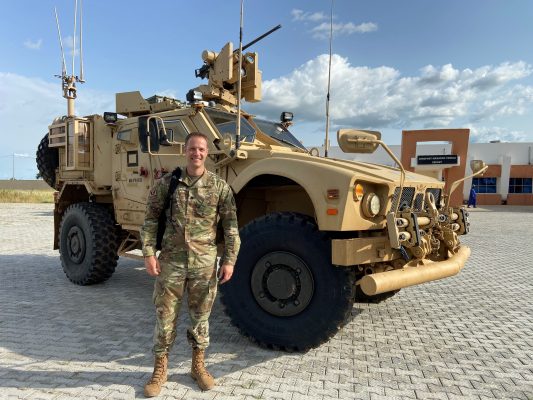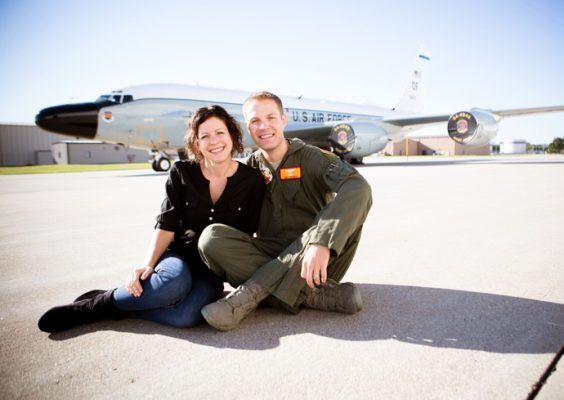When Michael Skarda started the journey of becoming a commissioned officer in the U.S. Air Force, there were no indications that his military career was beginning amidst two decades of conflict.
In 2002, Skarda joined the Air Force’s Reserve Officer Training Corps (ROTC) program at the University of Maryland, a path he had already seen his older brother successfully navigate and wanted to pursue for himself.
Skarda says the time was memorable for him in many ways. His brother was able to come back to campus and take part in the commissioning ceremony, providing a brotherly welcome into the officer corps of the U.S. Air Force.
Additionally, Skarda recalls being an ROTC cadet prior to the U.S. entering combat operations in Iraq. When the invasion began in 2003, he says many of his fellow cadets stepped back from their decision to join the military. His familial bond and desire to serve guided Skarda forward into what would become a remarkable career.
Currently, Skarda serves as the ranking officer for Syracuse University’s Air Force ROTC detachment, where he and a small staff of cadre prepare the next generation of military officers for the challenges that await them in an uncertain world.

“The challenge for the cadets, as I look forward in this global security environment that we operate in, is wondering where the next spot will be,” says Skarda. “We know the Pacific will certainly be active, but things are changing so rapidly that I hesitate to say any one location in the world is going to be the next hotspot.
Skarda’s first experience with real-world operations came early in his career. One of his first tours placed him in Germany where, as an intelligence officer for combat aviation units, he found himself amidst the struggles of a post-Cold War Europe and the demands of new, growing conflicts within the Global War on Terrorism.
Not long after Germany Skarda served aboard the RC-135, a signals intelligence reconnaissance aircraft that supports military and strategic leaders with real-time on-scene intelligence collection.
Skarda flew in the skies above Afghanistan supporting operations on the ground, and in his role was responsible for the acquisition and transmission of real-time intelligence information for decision-makers on the ground.

